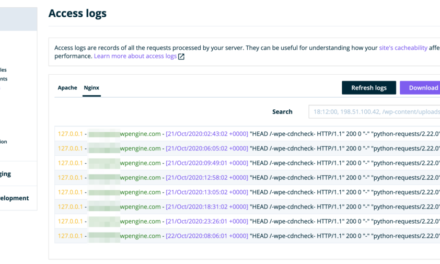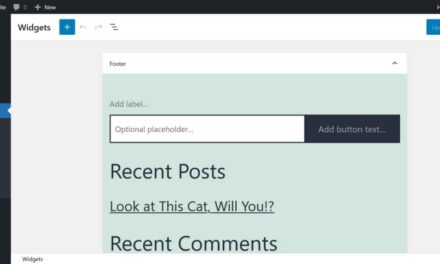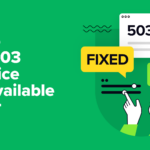WordPress is a dominating force in the web development industry offering many opportunities for doing business. Lots of designers, developers, and creators rely on it for income.
Continuing to make a living – especially if you’re a freelancer without a steady flow of cash – means knowing where to hone your skills and look for work. Keeping on top of upcoming WordPress trends can help with that.
That’s why we’ve taken a close look at where WordPress is headed and identified these ten business trends and opportunities. Keep these in mind as you pursue your WordPress career and perhaps you’ll win out over your competitors.
The State of WordPress

WordPress continues to dominate the web as the software of choice for 43.2% of all websites. The user-friendly interface, extensive customization, open source philosophy, and lively community likely all contribute to that.
Check out these other stats for an idea of how well WordPress is doing these days:
- The official plugin repository has almost 60k plugins.
- The theme repository contains close to 12k themes.
- The most popular WordPress plugin is Elementor, with over 400 million lifetime installs and 5+ million active installations.
- In 2023, Wordfence blocked 100 billion credential stuffing attacks alone.
- Just WordPress.com users produce 70 million new posts and 77 million comments each month. Also, 409 million people view more than 20 billion pages in that same timeframe.
It’s clear that WordPress’ popularity isn’t going anywhere any time soon. Yet, the platform and the environment it exists in continue to change. What new opportunities do these developments offer for savvy entrepreneurs to earn money? Let’s take a look at that now.
1. Incorporating Generative AI

Generative AI has swept the Internet. Seemingly overnight, businesses of all kinds now use AI-generated artwork, writing, and marketing as a major part of their strategy. And there’s no sign of this changing any time soon, or ever.
In an interview between Pootlepress creator Jamie Marsland and WordPress co-founder Matt Mullenweg, the latter expressed optimism for the future of AI and various ideas on how it might become a part of WordPress. This was also a popular topic at WordCamp Europe 2023.
With high-profile figures putting their stake into AI, it’s definitely something to look into ASAP.
AI has grown increasingly common in WordPress plugins and services already. Some well-known examples:
- Akismet Anti-spam has been using AI to detect spam comments for a long time now, and recent advances have only hardened its defenses. In addition, they just partnered up with Arwen.ai, which similarly uses AI to detect harmful comments.
- SEOPress has begun bundling in generative AI features, allowing you to generate meta descriptions and image alt text. Yoast SEO Premium comes with similar features.
- Bluehost launched Wondersuite in 2023, an AI-powered onboarding and design tool for new websites.
- Elementor developed Elementor AI, which adds the ability to automatically generate images, write copy, and design websites from within the drag-and-drop editor.
And the list goes on. There are already plenty of things you can do with AI in WordPress. The above cases are just the tip of the iceberg.
So, how can you use this trend as a business opportunity in WordPress?
First of all, if you have a plugin, theme, or service where it could fit in, consider adding AI to your feature list. However, you can also consider the AI route when building websites and find ways to give your clients access to it in the back end.
2. Offering Hand-Made Content Creation and Marketing
AI has become a major productivity tool for many creators. It’s great for coming up with ideas or helping you get unstuck. Unfortunately, some people have had other ideas about how to use AI.
There’s now a lot of low-quality AI-generated content bouncing around the Internet. You’ve likely run into some of it already: completely unedited, AI-generated writing supposedly published by a human author. Even academic journals aren’t free of it.

Some people even dishonestly sell AI-generated artwork and writing to clients without disclosing it.
With the state of AI not changing any time soon, you can expect a market to emerge for skilled content creators – copywriters, ghost writers, developers, marketers, artists, and so on – who don’t rely on it.
That doesn’t mean you can’t use AI as an assistant. It’s completely fine for content creators to do so. However, it’s important that it serves as a foundation for useful and original content.

So, those skilled artists and authors who have a strong style no AI can fully replicate, you may find an emerging market for your work.
3. Focusing on E-commerce
If you’re interested in making a career out of WordPress and not yet sure where to specialize, or considering opening a business of your own, focusing on e-commerce could be a great opportunity.
The business of selling things online continues to grow globally, and has long been a dominant industry. It makes up over 19% of all retail sales and will possibly generate $3.2bn in 2024. As more businesses pivot towards online sales, the demand for e-commerce solutions, particularly those integrated with WordPress, continues to surge.
Even among popular e-commerce platforms like Shopify and Squarespace, WooCommerce wins out as the top ecommerce platform, eclipsing all other options with a 38.74% market share. It’s clear that WooCommerce and WordPress are a favorite among online retailers.
This presents a significant financial opportunity. Capitalize on this trend by specializing in building or working with e-commerce stores using WordPress and/or WooCommerce.

Whether you’re more comfortable creating small boutiques or large-scale enterprise stores, offering tailored e-commerce solutions rather than general WordPress design services can be an opportunity to differentiate your business in a crowded market.
4. Getting Into Headless WordPress
WordPress is a world-renowned CMS and many are big fans of its simple and elegant handling of content like blog posts, pages, categories, and tags.
However, the nature of WordPress means you’re effectively locked onto the platform. Maybe you don’t like the front end side of things and would rather build your website from scratch while still utilizing the CMS features. Or maybe you’d like to port CMS data to multiple channels.
Headless WordPress has been a popular solution for some years now. It means decoupling WordPress’ front and back end. For one, this allows you to utilize front end technologies like Ruby on Rails, Vue, React, or Angular that were incompatible with WordPress before. It also lets you turn WordPress into a dynamic, omnichannel marketing platform.

You can use this concept to make your own unique and profitable projects. Alternatively, take advantage of the ongoing headless WordPress trend to develop and design headless websites for clients.
5. Adding Subscriptions to Your Strategy
Subscription models and membership sites have become more and more common ways to keep customers around long-term. Some examples of platforms that successfully use these models include Netflix, Amazon Prime, Adobe, and Google Workspace.
But it’s not just for massive companies. Small businesses can also benefit from subscription business models. For example, subscription boxes have become a popular and fun way to retain customers. At the same time, platforms like Patreon demonstrate the success of offering monthly goods, services, and exclusive access to content.
The benefits here include greater customer retention compared to a traditional e- commerce store, as well as an ongoing revenue stream for your company.
For WordPress creators and business owners, consider offering recurring benefits like exclusive access to articles, videos, downloadable resources, software, and other members-only opportunities. Plugins like MemberPress and WooCommerce Subscriptions can help you set this up.
6. Taking Advantage of Gutenberg’s Growth
On its initial release, WordPress’ Gutenberg block editor was heavily criticized and caused a big controversy. Many people were not fond of the new editor and its workflow, and even today five million users have the Classic Editor still installed.
Yet, it’s important to point out that the block editor has actually improved a lot. Many UI and workflow issues people disliked have been cleaned up, and more improvements and features are constantly making their way into Gutenberg.
There’s also the shift towards Full Site Editing, allowing you to edit global styles, header, footer, page templates and so on within Gutenberg. This includes, for example, the ability to make the WordPress header sticky.

Gutenberg is even expanding outside WordPress and into other platforms, including Tumblr.
Even if you don’t like it yourself, there’s no denying it: the future is in block-based themes and plugins.
What does this mean for you? If you develop themes, plugins, or client websites, consider focusing on and incorporating Gutenberg.
You may want to design block-based, rather than classic, WordPress themes. Or create and sell custom Gutenberg blocks and pattern collections. Blocks are the new shortcode, so consider adding these to existing plugins – see WooCommerce’s product blocks or Contact Form 7’s contact block for examples.
You might even consider adding Gutenberg to your non-WordPress project.
7. Creating Niche Content
WordPress is an absolutely massive platform. Millions of designers, developers, authors, and marketers wish to apply their skills in a WordPress environment – and millions of businesses small and large are looking to hire them.
While this has led to a sharp increase in job opportunities, it has also made the market very saturated. It can be hard to stand out, especially if you don’t have a decade of experience. Just how many “WordPress developers” are you competing with? It’s a lot.
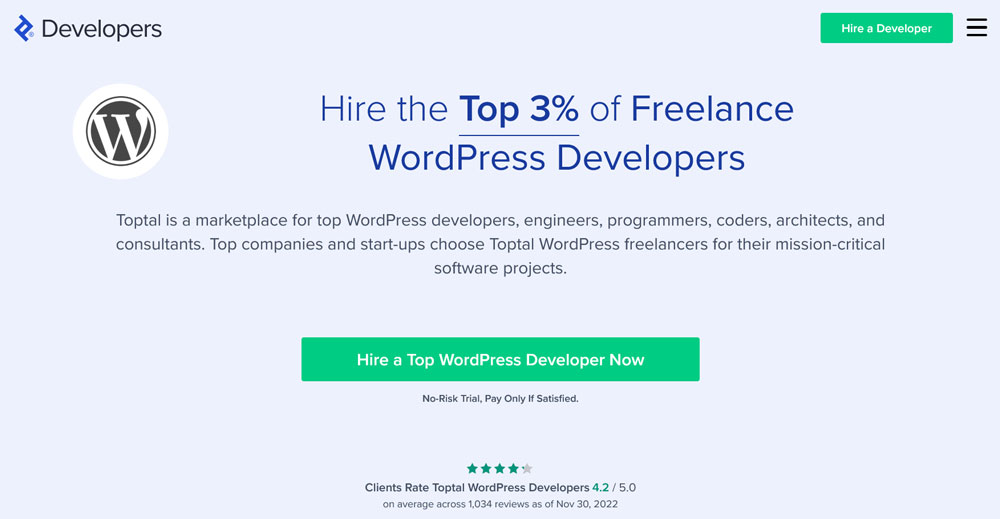
With generalized designers, developers, and authors struggling to find a job, it can be wise to specialize in a particular niche. Focus on and promote a particular skill or market.
For example, perhaps as an author you’re particularly proficient in a certain topic. Maybe as a developer you specialize in using a particular tool, like WooCommerce or Divi Builder. As a web designer, you could primarily create website mockups for luxury retailers.
In such a large market, it’s better to specialize than to spread yourself too thin and not attract enough clients.
8. Specializing in Mobile-First WordPress
Whether you like it or not, most people are now using primarily or even only mobile devices. Mobile traffic makes up 66% of traffic share, and these days, a quarter of adults can’t even use a computer. Not to mention, Google now prioritizes mobile-first indexing.
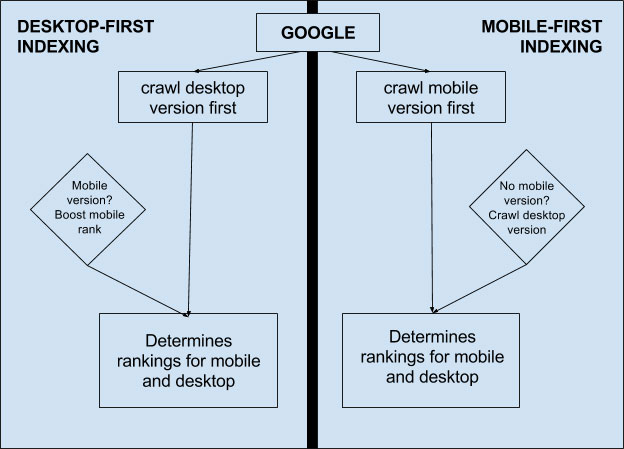
As a consequence, a lack of mobile friendliness will damage your SEO, and if you’re building a plugin or theme, this becomes your users’ problem.
So, whether you’re building client websites or add-ons like themes and plugins, it’s extremely important to focus on mobile-first and responsive design. In addition, clients or users will prioritize hiring you and using your extensions if you make mobile usability a key part of your strategy.
9. Get Ready for Real-Time Collaboration
The Gutenberg project has gone through many phases, including the addition of Gutenberg itself in its first phase. In Phase 2, we saw the addition of the Site Editor, block patterns, and block themes, among other customization additions.
Now Phase 3: Collaboration is underway, and with this comes some major changes. Look forward to real-time and asynchronous collaboration, a better publishing workflow, and improved navigation in the WordPress’ back end.
While this doesn’t have any direct profit potential on its own, real-time collaboration will be a boon for many businesses. Faster and more streamlined workflows means more efficient creation of WordPress content. And who knows, as a savvy developer, you might be able to build on top of the new workflow and offer additional value with a plugin or theme.
10. Researching Jobs in the WordPress Industry
By now, WordPress has become basically its own industry. Many designers, developers, and other creators work specifically and primarily in the WordPress environment, rarely if ever using any other platforms. Those who know the ins and outs of WordPress can do powerful things with it.
Finding a job as a WordPress specialist is difficult mostly due to the amount of competition rather than a lack of jobs. With so many businesses relying on WordPress, they’re quick to snatch up skilled employees whenever there’s an opportunity. Now’s a great time to pick up a new skill.
As mentioned above, you may find it easier to get hired or find clients if you work in a specialized role like setting up e-commerce stores or working with particular, well-known plugins.
If you have yet to develop your career, specializing in WordPress may be a good idea. Check WordPress job listings to see what people want and what is hot. You could focus on learning what there’s an obvious demand for and end up making a lot of money down the line.

WordPress job listings can be found on WordPress.org, Indeed, Codeable, and these job boards.
WordPress Business Opportunities About
The WordPress ecosystem is constantly changing, influenced by design and development trends that impact the web as a whole. It’s hard to know for sure what the next big thing is really going to be.
But a little guidance can go a long way. These upcoming WordPress trends can give you an idea of where the platform is headed. Using this knowledge, you can pick up a new skill or take your fledgling projects in the right direction, and perhaps get ahead of the competition.
Did we miss anything exciting on the WordPress front? What business opportunities do you think will dominate WordPress in 2024 and beyond? Share your thoughts in the comments below!




